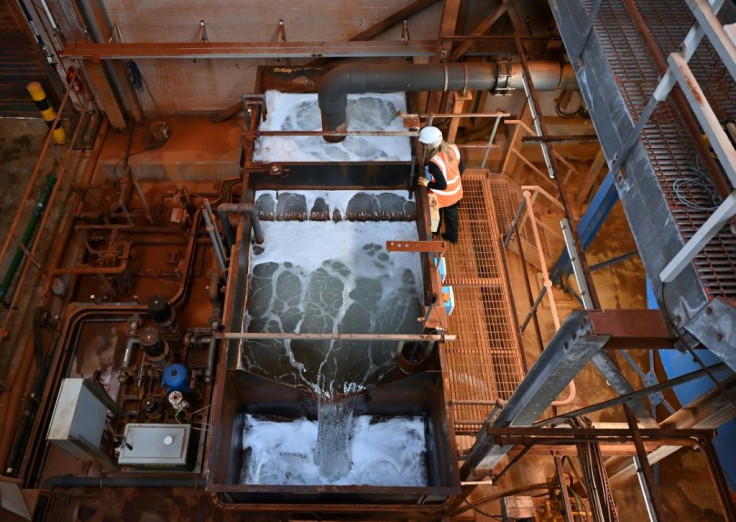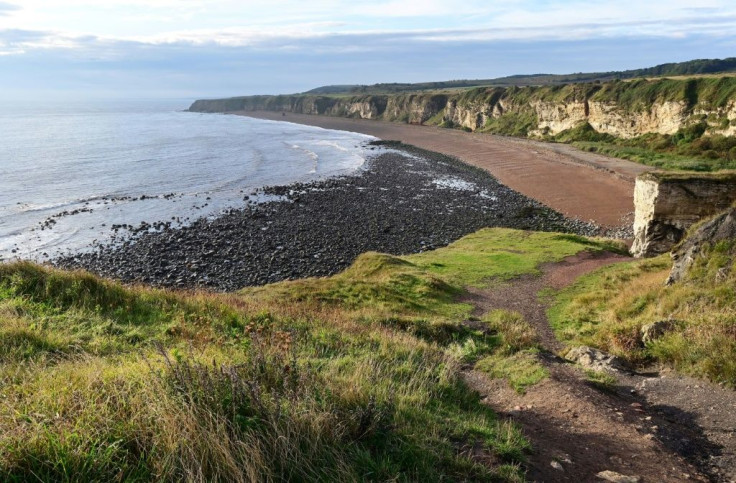Green Energy Springs From Abandoned UK Coalmine
Dawdon coalmine in northeast England was abandoned three decades ago, but is being brought back to life as the unlikely setting for a green energy revolution.
The carbon-intensive colliery, near the town of Seaham on the windswept northeast English coast, hauled coal from deep underground until its closure in 1991.
Dawdon has long since flooded with water because part of the mine is below sea level, and is heated by geothermal energy.

Authorities now want to capture and harness this valuable and unlimited green energy source to power a new garden village development.
"The heat is basically coming from the ground," said Durham County Council official Mark Wilkes, whose portfolio includes climate change.
Water deep inside the mine heats up underground to about 20 degrees Celsius (68 degrees Fahrenheit).
At the colliery's entrance, where thousands of miners once rushed to work, the vast pipes of a treatment plant now suck up the equivalent of a bathtub of warm water every two seconds, which is used to heat up a separate water supply.

In turn, this water circuit is heated via a pump until it reaches 55-60 degrees Celsius.
The plant treats the highly acidic and ferrous water in order to prevent contamination of local beaches and water supplies.
Its heat will eventually power local homes, while the treated water is released back into the sea.

"We are taking what was from the industrial revolution -- and we're using it for the green revolution," Wilkes told AFP.
Heat from the water has so far only been used for the heating of the facility.
But in two years' time the local authority will create a new village of 1,500 homes nearby -- entirely heated by the plant.

"It is an unlimited source of energy: the water is coming through all the time," added Wilkes.
"There are costs with the technology, but hopefully this will help to keep the cap on those costs going forward."
This is the first geothermal project on such a large scale in Britain, and Wilkes hopes it could also heat nearby businesses.
Britain is heavily dependent on natural gas for electricity generation, although Prime Minister Boris Johnson, who hosts the COP26 climate summit next month in Glasgow, wants to shift all UK energy production to renewable sources by 2035 to help reach carbon neutrality by 2050.
The urgency of the move was underlined by a surge in gas prices last week to record heights, stoked by economies reopening after coronavirus shutdowns and fears of spiking demand in the upcoming northern hemisphere winter.
Durham County Council has yet to name the company that will operate and partly finance the Dawdon plant.
The geothermal heating will not be cost-free but authorities hope it will be cheaper than using gas.
"The heat pump uses an electrical input," said Charlotte Adams, manager for mine energy at the UK Coal Authority industry body, which oversees old mines.
"So it's not carbon-neutral, but it is energy efficient.
"But as you can imagine, over time the carbon content of electricity is decreasing, as we decarbonise our electricity supply.
"So over time, you're getting close to something which is pretty low carbon."
The process is four times more energy efficient than a purely electric heating system, Adams said.
The Dawdon green energy project will cost between ?12 million and ?15 million, funded via government, the plant's future operating company and property fees.
© Copyright AFP {{Year}}. All rights reserved.





















